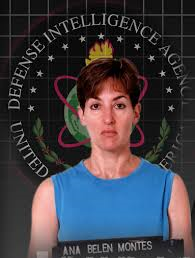Writing first in the Cuba Transition Project and then the Miami Herald, Dr Brian Latell recently energized readers with his feature, New revelations about Cuban spy Ana Montes.
I,
however, was greatly disappointed with the article. To start, he
sensationalized several trivial issues and recycled old news stories
(yes, she was a “true believer” volunteer and yes, she was brought to the Cubans by talent-spotting agent Marta Rita Velazquez). None of this information is new.
However,
he then misinterprets several key facts due to a lack of understanding
regarding the field of counterintelligence, in layman’s terms –
spy-catching.
For example, Latell claims that Montes met with her handlers “initially in New York, and later at her request in the Washington area…”
Any Counterintelligence officer knows Havana would never consider
running a penetration of the US government from 225 miles away. Having
an agent or officer travel that distance once or twice a month for an
extended period would be a huge risk to the security of the operation.
Montes may have “asked” the Cubans for a DC-based spy handler, but the
reality is she was going to be transferred to a local operative
regardless of her wants and wishes.
More dangerous (and out of context) is his claim that during her interrogations, she was told that investigators “had
information from a senior official in the Cuban intelligence service
concerning a Cuban penetration agent that implicated Montes.” While
that may be - in part - what the Pentagon document said, rare are the
instances wherein an interrogator would truthfully tell a suspect they
were betrayed by a colleague. That said, it is a common ploy to lie to a suspect and tell him/her their own people gave them up. This is what occurred with Montes.
Another major error is his wildly speculative and erroneous statement: “Did
she work with other American spies? The report is ambiguous; it states
that after the terrorist attacks on September 11, 2001 pressure
intensified to arrest Montes. The FBI preferred to wait, however, in
order “to monitor Montes’s activities with the prospect that she may
have eventually led the FBI to others in the Cuban spy network.”
The
FBI wasn’t the only organization that preferred to wait – those of us
in the Defense Intelligence Agency wanted to continue building the case
as well. The “others in the Cuban spy network” weren’t part of some mysterious massive spy ring, but rather the compañeros she'd served during her espionage career.
Dr
Latell is an exceptional analyst in his field. That said,
Counterintelligence is a discipline unto itself, rendering any analytic
generalist a poor job fit for analyzing spy services.
Counterintelligence analysis is – and will always be -- best performed
by badge-carrying Special Agents skilled in investigations, operations,
and collections.

No hay comentarios:
Publicar un comentario